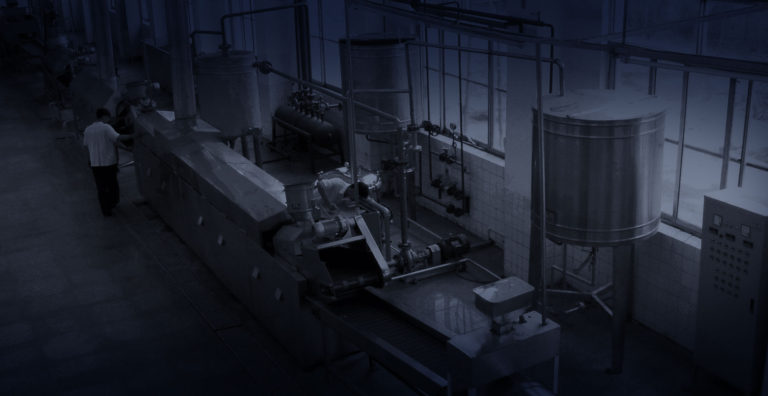I am convinced that the future can only be created by the people who will live in it. It is no accident that in the last decade, more and more children are appearing who are making revolutions in the market in different directions. This is already happening in it, in the social movement, in some scientific areas, and very soon it will happen in our industry. Therefore, we want to be ahead of the curve and launch a new project at the resident center for food startups Mabius: “Food Council” – an entrepreneurial school and business accelerator for children aged 10-15.
Why do we believe that children can create great food products and start their own business with them? From children spring up the most creative ideas in a way that is difficult for adults to produce. We call this phenomenon “Reverse Cycling.” Dustin Sandline, a popularizer of science on YouTube, conducted an experiment. Being able to ride a Bicycle well, he tried to master a Bicycle that turns the handlebars in one direction and the wheels in the other. It turns out that this is not so easy — the adult brain is so used to performing these memorized actions automatically that even great mental effort could not make the desired new actions be performed. Only after 8 months did Dustin learn to ride such a bike, but then — forgot how to ride a normal one! Now, at the same time, his six-year-old son learned all of this in a couple of weeks, while not losing the skill of riding a regular bike.
The flexibility of thinking decreases with age, so it is much more difficult for adults to learn new things than for children. Modern educational systems primarily use games in order not to “wear innate creativity down to nothing.” I will say something that will seem seditious for most parents and teachers: Yes, this includes computer games. We can see from our own children that they do not “dumb down,” but develop – and in the most attractive form for the new generation. Both eSports and online games require creative skills, the ability to work in a team, multi-level thinking, the ability to prioritize tasks and calculate the sequence of steps.
With the goal of promoting and developing children’s entrepreneurship in the field of food startups, my partner Denis Semykin and I decided to create a whole gaming ecosystem — the “Food Council”. This is a project for children and teenagers from 10 to 15 years old. It received 250 thousand euros of investment from our venture Fund and will start on June 1, 2020.
Everything will be as per adults in the project, which means that participants will have the opportunity during the course of the accelerator to move from imagining their product to realising it — and launching their first ever real food startup. The program for the summer of 2020 will be as follows.
June – the launch of the first stage: the “Food Council” boardgame, which is played online — It appeared at the end of spring on the online aggregator of Board games Tabletopia.com. There you can play both by yourself and with mentors. The point of the game – participants come up with new food products and then bring them to the market. Taking into account the attendance of Tabletopia — before the quarantine there were 360 thousand users on the platform, in March-April 2020 half a million more were added on top — we expect that tens of thousands of teenagers will already start playing the game in the first month.
The next stage is in July: a month-long online camp for 50-80 teenagers. The most successful Food Council players on Tabletopia will receive grants to participate in the camp, while the rest will receive a payment (about 300 euros per shift). The camp will be held in Zoom under the leadership of program Director Ivan Shamaev and the best food market experts and mentors. The participants of the camp will have to come up with a product that will be in demand in the market, calculate the customers’ needs, devise an effective advertising campaign, create a landing page for the project themselves, and hold a crowdfunding campaign — which is important not only to raise money for the production of a prototype, but to measure the interest of the potential audience.
In August, the top 10 graduates of the online camp will be able to receive a grant to participate in the offline camp, participation which will receive payment between 1.5 to 2 thousand euros. Tentatively, the camps will be held on Lake Garda in Italy and in Krasnaya Polyana in Russia. At this stage everything will be as per adults: working with formulas, interactions with technologists, and even test markets.
The teenage creators of the best projects will be invited to a real adult business accelerator – and they will bring their projects to life together with the Mabius team at the food start-up center. After that, in the fall, the Alntrigud Foundation will review up to 10 childrens’ startups and, in the best of cases, invest real money in them, meaning by the end of the year the first products made by children would appear on the shelves of Russian supermarkets.
The Program Director of the project — Ivan Shamaev: has enormous experience in programming and conducting children’s camps – he has worked as a chief counselor in Maksatikha camps in Russia, organized and conducted Maksatikha children’s camps in Italy on a turnkey basis, and came up with and carries out online camps for teenagers – Silicon Valley Camp. Nikita Dodonov is responsible for the professional accelerator in the field of food startups and has for the last 5 years has been engaged in the organization such work in Mabius. Additionally, game programs are supported by young moderators who helped to create the “Food Council ” boardgame – Anastasia and Anton Semykin. Sound interesting? Get your teenagers involved now!





